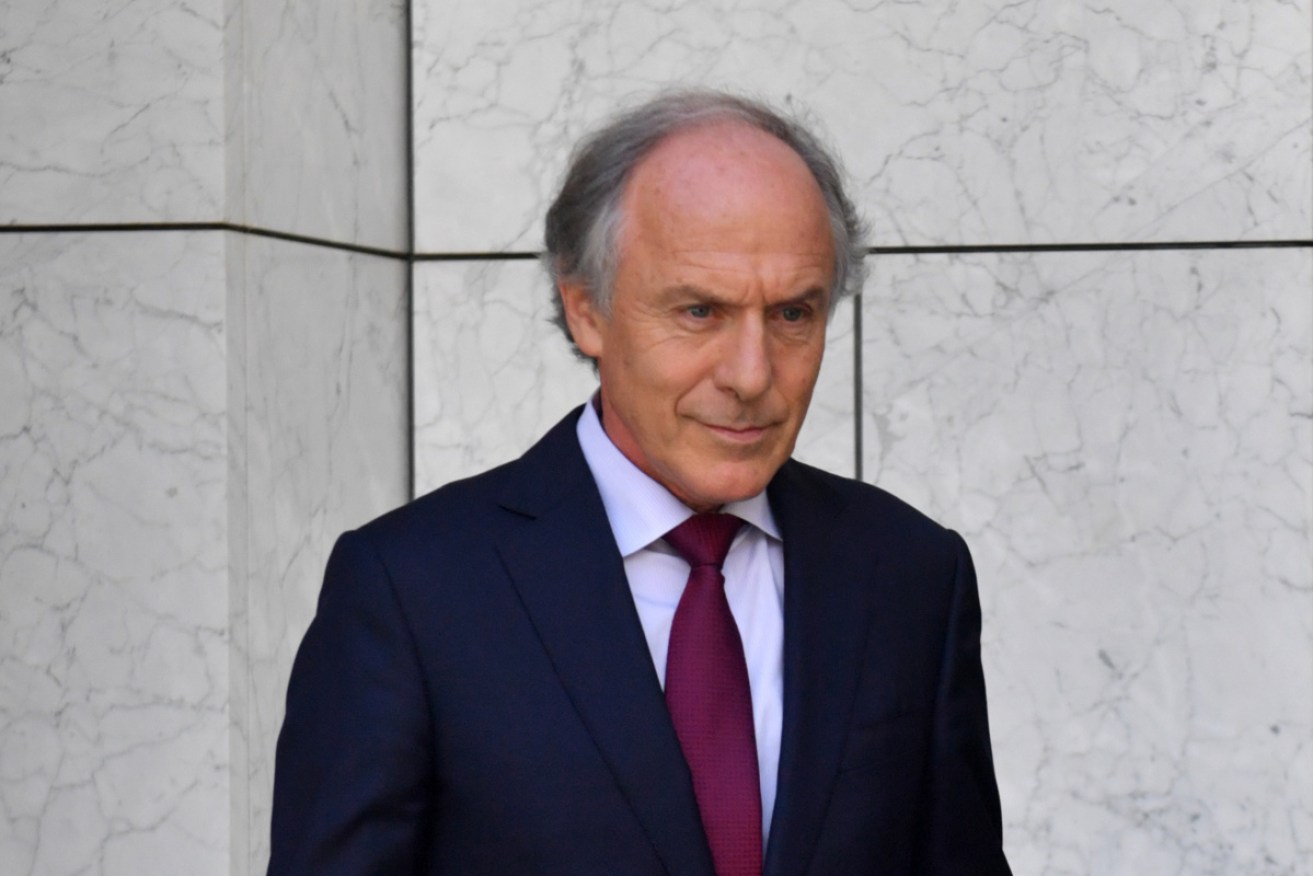Former chief scientist Alan Finkel says Australia can ‘eat cake’ on net-zero targets

Alan Finkel has unveiled his plan for Australia to reach net-zero emissions without economic harm. Photo: AAP
Alan Finkel wants Australia to have its cake and eat it too on the path of net-zero greenhouse gas emissions by 2050, insisting the climate wars needn’t be a trade-off.
The former chief scientist has unveiled his plan for the nation to reach the mark without compromising the economy, and the role gas can play in the transition to an “electric planet”.
Australia can cut 75 per cent of its emissions alone by tripling solar and wind energy production to replace coal, oil and natural gas, he says.
“The pathway is clear for the three-quarters of emissions that can be cleaned up by replacing electricity,” Dr Finkel told La Trobe University’s Getting to Zero webinar on Thursday.
“The rest of it is hard. That doesn’t mean you don’t do it, it just means you’ll have to continue to invest in research.”
Dr Finkel believes technology is the way forward to reduce the final 25 per cent of emissions from sources including agriculture, waste decomposition and industrial processes.
“I don’t look for a trade-off,” he said.
“We want to drive our emissions to zero while having economic growth. I want our cake and I want us to eat it too.”
The federal government has been spruiking a gas-led recovery from the COVID-19 pandemic.
But Dr Finkel said the need to expand the use of the increasingly maligned fuel hinges on how quickly Australia transitions away from coal.
“If we’re slow in taking coal-fired electricity out of the system, forget it – don’t bother with the gas. Just rely on batteries,” he said.
“But if there is – and states are pushing towards this – a fairly fast transition from coal to something else, then gas is going to be important.
“Whether it’s important for a decade or two decades or three decades, well that just depends on how things unfold.”
Unlike all states and territories, the federal government has not made a formal pledge to net-zero emissions by 2050.
Australia’s goal under the Paris agreement is to reduce emissions by 26 to 28 per cent on 2005 levels by 2030, a target scientists have long argued is not ambitious enough.
Prime Minister Scott Morrison appointed Dr Finkel as a special adviser on low-emissions technologies in December when his five-year stint as chief scientist ended.
The neuroscientist says reaching a net-zero target by the end of 2030 is not feasible, although wouldn’t be drawn on whether the government needs to set a hard deadline.
“I don’t accept that there’s a cliff … on a particular date on 2035 or 2037 or 2046,” he said.
“It’s pretty clear that the longer we continue to put out higher levels of emissions, the worse it gets.
“The simple answer to the question is we need to get to zero or to net zero as quickly as possible.”
Political will and modified human behaviours alone won’t bring about the change required, Dr Finkel added.
But climate activist and author Tim Flannery pressed home the need for urgency, highlighting a third of humanity’s emissions had come since he was named Australian of the Year in 2007.
“I can see the day where we are going to have to get on a war footing for this and it’s very, very close,” Professor Flannery said during the 90-minute discussion with Dr Finkel.
“I can’t see how we can make that transition you talk about … without a massive effort, and every year we leave it, as you say, it gets harder.”
-AAP








